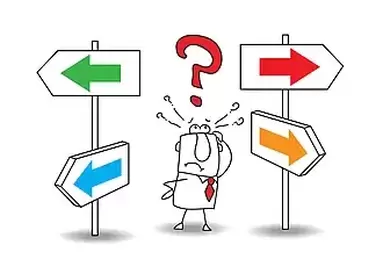- Music services
- Audio services
- Forensic Musicology
- CV & Credits
- Contact
- Lessons
- Music Copyright Checker - Compare Melodies, Rhythms, & More
- The FAV Corpus
- Music Theory For Producers
- Music Theory Placement Exams
- Copyright Cheat Sheet: Finding Substantially Similar Songs
- All I Want For Christmas Is (Sue) You: A Forensic Musicologist On The Mariah Carey Case
- Mexico City WhatsApp Groups
- Music Retreat
|
Are you confused about the music theory placement test? You're not alone. You may ask yourself questions like...How do I study for the placement exam? What is a good exam strategy? Does the music theory test really matter - should I prepare for it? How can I learn enough music theory to pass the placement test? For many students, the theory placement exam is a big mystery. Many schools give you NO study guide, NO practice/sample exams, and NO list of topics for the placement exam. Most of the top music conservatories have a placement exam, and colleges like UCLA and OSU are famous for difficult music theory placement exams. Usually written before the start of the semester, the placement test can be online or in-person, timed or untimed. The placement exam (also called entrance exam) is the first exam you will do in your degree. However, you should take it as seriously as a final exam, because it determines SO much of your future, as I will explain below. In this article, I will give you 4 golden tips to help you pass the theory placement test. Read on... Tip #1: Take the music theory placement exam VERY seriously The placement exam can be anything from a basic music theory test, to an advanced assessment of complex concepts. Most universities will say the placement exam isn't a big deal - they will say the exam is about placing you in the appropriate music theory class for your skill level...that you don't need to worry about it. That's a lie. The music theory placement exam is the most expensive, important exam you will EVER take in your life. Why? Because, if you fail the theory placement test, the university forces you to take remedial or basic music theory courses. This result has a HUGE impact on your life. If you get a bad grade on the theory placement exam, you lose a LOT of time and money in your degree. Think about it. The placement exam is like a time machine. If you do a good job on the exam, you can skip the basic music theory classes. You will save time and money. You can finish your degree faster, and jump forward in time. You might even finish your degree early. On the other hand, if you don't succeed on the placement exam, you have to take remedial, review courses. You will lose many months of your life, retaking courses that maybe you already studied at a previous school. You will travel back in time, increasing the cost and time to finish your degree. Many students lose an entire year of their life because of the placement exam. They are forced to extend their degree time, just to take the required theory courses. To review, the theory placement exam determines:
Retaking basic music theory courses can cost you tens of thousands of dollars. So...you should take the theory placement exam VERY seriously. As we will see below, the BEST way to prepare quickly and effectively for the theory placement exam is with a professional music theory tutor like me. Tip #2: Talk to your teachers To prepare for the placement exam, you must communicate with your school. Ask them for ALL resources for the placement exam:
Often, this information is NOT visible on the school's website. You have to ask. You need to personally ask ALL of your contacts at the school: professors, students, administrators, alumni, etc. What if there are no practice exams, guidelines, or past exams available? You can still ask former and current students, professors, and administrators what are the types of tasks, questions, and repertoire on the placement exam. Get ANY and ALL information that you can. Ask your school these questions:
Tip #3: Know the textbook and definitions of your school Remember that every school's music theory curriculum is completely different. They use different textbooks, different terms and definitions, and different philosophies of music theory. Maybe you were an A student at your old school...but your new school might be much more advanced, or uses completely different terminology and ways of labeling chords, cadences, phrases, and more. If you’re about to start your Master’s degree or DMA – remember that music theory at the graduate level is much harder than the Bachelor’s level. If you’re about to start your Bachelor’s degree – music theory is going to be much more complex than what you learned in high school, even if you did AP Music Theory. You need to know what music theory textbook your college uses. Every book has different definitions and labels. Cadences (e.g. PAC, IAC), phrase types (e.g. sentence, period), and musical form (e.g. binary, ternary, Sonata form) are all different depending on the textbook. Sequences have completely different names and labels depending on the teacher or book. Counterpoint, harmony, SATB part-writing, and voice leading have MANY different rules depending on the textbook. And don't even get me started on post-tonal theory! If you want to succeed on the entrance exam, you need to know WHAT is the textbook, and study that book and its definitions. Tip #4: Get help from a music theory expert To be honest, most music theory textbooks are too long, complicated, unclear, and difficult for students to understand. And you probably don't have time to read the entire 800-page book... Instead, it is MUCH faster and more effective to work with an experienced professional music theory tutor such as myself. Working closely with your tutor in one-on-one private lessons, you can practice the material, get feedback on your work, learn the definitions of the textbook, and be prepared for REAL success on the theory placement exam. Lessons are much more fun than reading a textbook, and studies show that students get much higher grades on exams and assignments when they work with a tutor. The truth is, if you really want to succeed on the theory placement exam, you will need the help of a music theory master to teach you the skills necessary to pass this exam with flying colors. You're in excellent hands with me. I have prepared many, many students for music theory placement exams for many years. I have also written, designed, and graded a LOT of music theory tests and assignments. Conclusion What are your questions about the music theory placement exam? Have you asked your school for guidelines, sample tests, and past exams?
Leave your comments and questions below. I promise to answer every single one. Happy studying!
2 Comments
|











